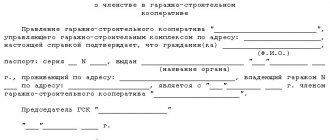In August 2020, the State Duma adopted a law extending the so-called “Dacha amnesty.” It is now possible to register a land plot as personal property under the dacha amnesty until March 1, 2022.
The dacha amnesty is a law on a simplified form of privatization of garden plots and buildings on them. That is, the transfer of land from municipal (rural, urban) property to private property, as well as a simplified procedure for registering buildings. The need for privatization is explained by the fact that until 2000, plots were allocated to summer residents without paperwork - the owner simply received a garden book.
At the same time, he had the right of use or lifelong ownership. The owner of the dacha could not dispose of this land in any way (sell, donate, etc.). Since 2006, thanks to the dacha amnesty, it has become possible to register ownership of a dacha plot and house free of charge and using a simplified procedure.
What areas can be privatized
Let us immediately note that privatization of a dacha is impossible if the plot is located :
- in reserve for any state or municipal needs;
- on lands to support airport operations;
- in the infection zone;
- in public areas (in a park, on a residential street, etc.);
- on the territory of a forest fund or water fund.
There are few such plots, since mostly garden plots are allocated as part of agricultural land or within the boundaries of a populated area.
The rules for the privatization of dacha plots are such that the following land plots can be transferred into ownership:
- for gardening and horticulture;
- other lands that are in unregistered (that is, according to old, outdated documents) possession before October 30, 2001.
The essence of the updated amnesty is that now you can register ownership of plots in gardening partnerships received at any time for free. But it is important that this dacha and gardening partnership be registered before 01/01/2019. Let’s say that if SNT was newly created on February 10, 2019, then plots on its territory cannot be privatized for free.
Privatization for private individuals is conditionally free, since you still have to pay a state fee.
At the previous stages of the amnesty, it was possible to register the lands of individual housing construction and private household plots. Now only garden plots and lands of long-term use (including those inherited from long-time users). By the way, the concept of “dacha” was excluded from the legislation, but some partnerships were not renamed, so privatization of garden, dacha, and vegetable plots is allowed.
Registration of ownership of a land plot in SNT using a book
In this case, the privatization of the land will be carried out on the basis of the documentation you collected. According to Article 252 of the Civil Code of the Russian Federation, citizens, owners of land plots who are members of gardening partnerships have the right to leave its membership and present a demand for the allocation of a share from the common property or receive monetary compensation in the amount of the value of their part, if the allocation of a share in kind affects the interests other participants of the partnership.
You can express your desire to leave the partnership by submitting a written application to the head (chairman) of your non-profit association.
Since withdrawal from society is your indisputable right, refusal to satisfy the application is excluded.
Stages of registration of privatization of a summer cottage
Privatization of dacha land plots is carried out in one to three stages. The number of stages depends on what documents you have for your dacha.
Obtaining documents from the horticulture board
The first necessary documents are a membership card and a statement certified by the chairman that you own the site. The conclusion indicates the location, as well as the area of the site.
Alienation of a site from municipal property
With documents from gardening, you should go to the local administration, or rather, to the committee (management) of land resources and property. It is necessary to write an application to the committee for the allocation of land as property. Copies of the passport, membership book and conclusion of the board of the dacha partnership are attached to the application. If there are no obstacles to privatization, the administration prepares a document (act, order) on transferring this site into ownership.
Registration of ownership
All collected documents (and there can be quite a lot of them, especially if all the buildings on the site are registered) are attached to the application for registration of ownership of the dacha. The application is submitted to Rosreestr, or you can submit it through the MFC. Rosreestr reviews the application within 14 days, after which it issues a certificate confirming ownership.
How to register a plot in a gardening partnership
A garden plot can be purchased at your own expense, or it can be allocated by the local municipality. Knowing how to register a plot of land in a garden partnership as property is necessary in order to be able to freely dispose of it, for example, sell it, donate it, or pass it on by inheritance.How to prepare documents to register a plot
We would like to immediately make a reservation that if you have a certificate of ownership of an old-style plot, for example, pink, you can continue to own your plot without much hassle. However, if you need to carry out some kind of transaction with him, it may turn out, for example, that your plot in the gardening partnership is not registered in the cadastral register - it does not have a cadastral number and a corresponding passport. And if transactions can be carried out with an old certificate of ownership - they will simply register your previously existing ownership right at the same time, but you will not be able to do without a cadastral passport. It is advisable to have a cadastral passport for the plot in any case.
Ideally, the owner of a plot in a gardening partnership, like the owner of any other plot of land, should have the following documents on hand:
- title document for the garden plot;
- certificate of ownership of the garden plot;
- cadastral passport of a land plot with a cadastral plan and cadastral number;
- certificate of ownership of the garden house, if any;
- technical passport for the house, compiled by BTI.
Unfortunately, a significant number of amateur gardeners, as a rule, do not have any documents for a garden plot. The most they have is a gardener's membership card. And therefore, if you want to register a plot in a gardening partnership according to all the rules, you have to literally start from scratch.
How to register ownership of a plot in a gardening partnership
If this is your case, first of all, you will have to go to the gardening board and get a certificate there, certified by the chairman’s signature and seal, stating that you are indeed a member of this gardening and on this basis own a garden plot of a certain area. It is also advisable to obtain a copy of the plan of your garden partnership from the chairman.
Then you will need to write a description of your plot in the gardening partnership. Such a description must be drawn up in free form, indicating the approximate outline of the site and its distance to existing landmarks - an access road, a transformer box, a forest or a reservoir.
With this description and a certificate from the chairman, you will need to go to the administration of the local municipality and ask to transfer the specified plot of land to you. This can be either free or paid. As a rule, gardening partnerships have already managed to register the land they own as the property of a legal entity, so the plot should most likely be transferred to you free of charge. By law, you must receive a response from the administration within 2 weeks.
Next, your path lies to the regional office of the Cadastral Chamber, where this plot will need to be registered and receive its cadastral passport. By law, this does not require determining the exact boundaries of the site and its area, so land surveying need not be done. However, if you want everything to be done as it should be, then before contacting the Cadastral Chamber you should call surveyors and register a land survey for the plot with the gardening partnership. Of course, this will require additional time and expense, but it is better if the boundaries of your site are established accurately.
If you have a garden house or some buildings on your property, you will need to fill out the so-called declaration of real estate - such a declaration form can be downloaded on the Internet. It must contain a detailed description of the building and its technical characteristics. And it’s even better if you order a technical passport for a garden house from the local BTI, so that in the future there will be no discrepancies in the documents regarding its dimensions.
How to register ownership of a plot in a gardening partnership
The registration of property rights and the issuance of relevant certificates is carried out by a government agency called Rosreestr. Its regional offices are located in almost every major municipal center. You need to find out. Where is the one that deals with your area and submit the following package of documents there:
- passport;
- an application for registration of ownership of a land plot in a gardening partnership - written on the spot;
- an application for registration of ownership of a garden house, if there is one, is written on the spot;
- the Administration’s decision to transfer ownership of a plot of land to you in a gardening partnership;
- cadastral passport of the land plot and its cadastral plan;
- a declaration on the property, or a technical passport for a garden house, if available;
- receipt of payment of state duty - one for each property.
The period for registering ownership of a land plot in a gardening partnership is 1 month.
Documents for privatization
In order to register the land as your property according to all the rules, you will need certain documents for the privatization of a summer cottage.
Plots for gardening and horticulture
- passport (copy);
- any document on the rights to the garden plot, if available (act, order, certificate, extract from the household register, etc.) and an extract from the Unified State Register on the rights to it;
- if there are buildings on the site - an extract from the Unified State Register of Rights to them (if information about these buildings is included in the Unified State Register);
- if the plot has already been registered in the cadastral register - a cadastral passport for it;
- if buildings on the site are registered in the cadastral register, then their cadastral and technical passports are also provided. But this is voluntary;
- receipt of payment of state duty in the amount of 350 rubles.
Providing these documents is not mandatory, since Rosreestr has this information, but to speed up the privatization procedure it is better to provide them. All these documents are attached to the application submitted to the MFC. The application shall indicate the following information:
- plot size;
- site landmarks that allow you to initialize it;
- category of land plot;
- if there are encumbrances - information about them;
- information about existing buildings on the site;
- grounds for transfer of property from municipal to private;
- document of the local administration on the basis of which the land plot was alienated from municipal property.
Basic moments
A country house can be privatized according to the “old” rules if you pay a fee of 350 rubles to apply to Rosreestr. This is where you need to start. Then a special declaration is downloaded from the website, which is filled out by the owner of the land.
Where to begin
The privatization of garden plots by citizens is simplified when the citizen received the land on the basis of lifelong inheritable ownership. A citizen will have limited disposal of land, but will be able to transfer his land by inheritance.
Owners of country houses, dachas and garden plots who have registered them will, if necessary, be provided with a simplified statement, which is in no way inferior in legality to a paper certificate.
In 2020, the result of registering dacha buildings was to receive a certificate of ownership on paper. In 2020, the certificate is expected to be in electronic form; it will not be issued in person, as it will be stored in the Rosreestr archive.
Is it possible to privatize a plot of land using a garden book?
The registration procedure after the end of the amnesty will be more complicated and more expensive. You will have to obtain permission to put the building into operation. For this purpose, a commission of specialists is formed. The document will be issued only if all construction standards are met.
The law on “Dacha Amnesty” adopted in the country allowed owners of garden and dacha plots and houses to legalize their ownership of them and significantly expanded the possibilities for its implementation. Many potential owners of dacha plots have only garden books as their only document at the time of their privatization. This is not an obstacle to the privatization of a dacha, but you need to be very careful when purchasing objects using a garden book.
Possible difficulties
Difficulties may arise during privatization, despite the fact that the “dacha amnesty” has significantly simplified the process:
- The external boundaries of the land plot have been violated, and information about the area of the plot does not coincide with the cadastre. In this case, you will have to re-register the documents at the cadastral chamber.
- The horticultural partnership, as a legal entity, does not comply with the requirements imposed on it, for example, it violates fire safety and sanitary standards.
- Failure to pay SNT taxes or fines.
- Violations in SNT documentation: about the presence of land users, information about areas, unreasonable registration of excess areas, etc.
If there are violations on the part of the board of the dacha cooperative, privatization may be refused, but the owner can appeal the refusal in court. Refusal due to the fault of the owner may be due to incorrect execution of documents, insufficient number of documents, or non-payment of state duty.
The Department of Land and Property Relations at the municipality of the locality, which is responsible for registering ownership of dacha plots and buildings on it, has the right to refuse privatization to the applicant. The refusal must be made in writing on official letterhead. It must indicate the reasons for the refusal, the document is signed by an official and supported by the department’s seal. With this document, the applicant can apply to the court to appeal the decision that, in his opinion, is unauthorized.
The refusal and its reasons should not be irremovable, therefore, most often, going to court becomes a last resort for the applicant. Typically, citizens eliminate shortcomings on their own and put documents in proper order. To avoid refusal, you should be more careful in preparing documents: pay attention to their relevance and reliability, completeness of information.
Is it possible to privatize a plot of land using a garden book?
Privatization of a dacha usually means obtaining the status of owner in relation to it.
The rules for the privatization of dacha buildings and state registration of property rights are prescribed in 171-FZ and 218-FZ. Until March 1, 2020, owners have the opportunity to secure their rights without first obtaining permission to put the building into operation.
It is worth understanding that this is a right, not a duty, of a citizen. Many citizens prefer to limit themselves only to the privatization of summer cottages and not register their houses, thereby saving on. But this option creates many risks for the owner of the dacha: the building may be recognized as an unauthorized construction and require its demolition.
And if the owner decides to sell the dacha, he will have to significantly reduce the price, since without proper registration of the property, not every buyer will decide to make a deal. Before proceeding with the privatization of a dacha, it is necessary to prepare a certain package of documents.
Procedure
- statement;
- passports of all participants, copies of completed pages;
- cadastral plan;
- title documents for the land plot;
- title documents for buildings;
- technical passport for construction;
- extract from the Unified State Register.
Conditions
- Federal Law No. 178 - displays the privatization procedure and explains the existing nuances.
- Decree of the President of the Russian Federation No. 2284 - displays all available programs on the issue of privatization.
- Decree of the Government of the Russian Federation No. 585 - reflects the possibility of selling real estate for the purpose of further registration.
- Decree of the Government of the Russian Federation No. 584 - reflects the possibility of competitive sale of objects to private and legal entities for the purpose of privatization.
- Federal Law No. 1541-1 “On the privatization of housing stock.”
Registration of garden plots is a great way to become a full owner of a plot. But at the same time, there is no point in delaying privatization. Federal Law No. 93 or simply “dacha amnesty” allows for the free transfer of land into ownership until March 1, 2020.
If the archives of cooperatives do not have the necessary documents, they can be replaced with an extract from the book of the local administration. If you want to find out how to solve your particular problem, contact us through the online consultant form or call:
Is it possible to privatize a plot of land using a garden book?
A garden book is not a document of title. It is legally impossible to sell land or real estate using a garden book. The Civil Code adopted in the country provides citizens only with the opportunity to inherit perpetual rights to ownership. Many owners of country and garden plots and houses have certificates confirming their ownership, issued between 1991 and 1995.
This is an outdated document. It is not currently considered a title document.
The procedure for re-issuing documents is determined by Article 3 of Federal Law No. 137, adopted in 2001.
Previously arising rights to land had to be re-registered after the entry into force of the Land Code of the Russian Federation.
According to Article 223 of the Civil Code of the Russian Federation, the transfer of dacha plots and houses to other owners without proper re-registration









![eCabbage [CPL] RU](https://standart-rzn.ru/wp-content/uploads/ekapusta-cpl-ru-330x140.jpg)

